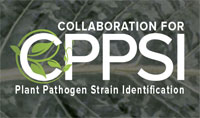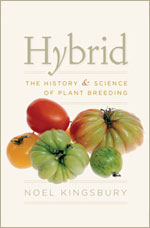The International Treaty (@Plant Treaty) is one of the fastest growing treaties, now boasting a membership of 146 Contracting Parties, including the European Union[1]. FAO recently acknowledged the International Treaty on Plant Genetic Resources for Food and Agriculture as one of the Organization’s “top 10 achievements.”
In the 15 years since its entry-into-force[2], the International Treaty has become the de facto flagship of FAO’s normative work on agricultural biodiversity. The Treaty brings together countries and partner organizations around the world to conserve and use the world’s precious plant genetic resources sustainably, both in the form of seeds of plants that provide food and nutrition, and the vital information pertaining to seeds and other plant material. Contracting Parties and donors, including the European Union, have expressed appreciation for the International Treaty’s work to conserve these invaluable natural resources, particularly in developing countries and centres of crop biodiversity.
At a relatively young age, the International Treaty has achieved some remarkable milestones. Most notable among these are a fully functioning Multilateral System of Access and Benefit-sharing, an effective Benefit-sharing Fund, a rapidly growing Global Information System, and work on Farmers’ Rights.
- The Multilateral System of Access & Benefit-sharing: This is currently the world’s largest global gene pool, with over 2.4 million accessions of plant genetic material being exchanged around the world at an astounding average rate of 1 000 transfers per day! The International Treaty’s Multilateral System is currently the most systematic and largest global mechanism to ensure regular and facilitated access to plant genetic material. This material is available to breeders and scientists as they work to help farmers meet the challenges of climate change, pests and disease.
- The Benefit-sharing Fund: In high demand, this Fund has already supported 1 million people in developing countries through 61 agricultural development projects in 55 developing countries over three project cycles. The 4th Cycle of projects is starting in the latter half of 2019 and includes another 20 projects involving 29 developing countries. To date, the International Treaty’s Benefit-sharing Fund has invested over US$20 million, with at least another US$6 million earmarked for the fourth project cycle. Since its inception, the Benefit-sharing Fund receives many more deserving project proposals than available resources. The upcoming Eighth Session of the Governing Body will consider an updated Funding Strategy to ensure a more predictable and steady flow of financial and other resources and enable the International Treaty to continue supporting valuable programmes, including those that rely on the Benefit-sharing Fund.
- The Global Information System: This provides a one-stop shop for all data needs relating to plant genetic resources by using a standardized “common language” that bridges otherwise disparate information systems. The International Treaty’s Global Information System is growing rapidly, enabling the collection, collation and exchange of information on plant genetic resources around the world.
- Farmers’ Rights: The International Treaty is the first legally-binding international instrument that specifically acknowledges the enormous contribution of indigenous communities and farmers to the development and management of plant genetic resources for millennia. As such, it is leading the way on Farmers’ Rights and calls on all Contracting Parties to protect and promote the rights of smallholder farmers and indigenous communities.
The Eighth biennial Session of the International Treaty’s Governing Body (GB) will take place this year at FAO headquarters in Rome, bringing all Contracting Parties together from 11-16 November 2019. The official session will be preceded by two days of regional and interregional consultations and a 15th Anniversary celebration. The GB sessions are decision-making events, during which the work of the last biennium is reviewed and key decisions taken about the future direction of work.
Over 700 delegates and stakeholders are expected to attend this GB, and make some critical decisions that will guide the future work of the International Treaty. Among the critical issues on the agenda are: the possible amendment of the International Treaty to expand the list of crops covered by Annex 1; and updating the Funding Strategy to establish a more encompassing and sustainable financial footing for the implementation of the International Treaty, including its Benefit-sharing Fund.
#ItAllStartsWithTheSeed #PlantGeneticResources #Biodiversity #FoodSecurity #BenefitSharing
@PlantTreaty
|
2019 marks two important milestones in the history of the International Treaty:
|
[1]As of 08 July 2019.
[2]The International Treaty on Plant Genetic Resources for Food and Agriculture was adopted by the 31st Session of the Conference of the FAO on 03 November 2001, and entered into force less than three years later, on 29 June 2004, upon ratification by 45 Contracting Parties.












